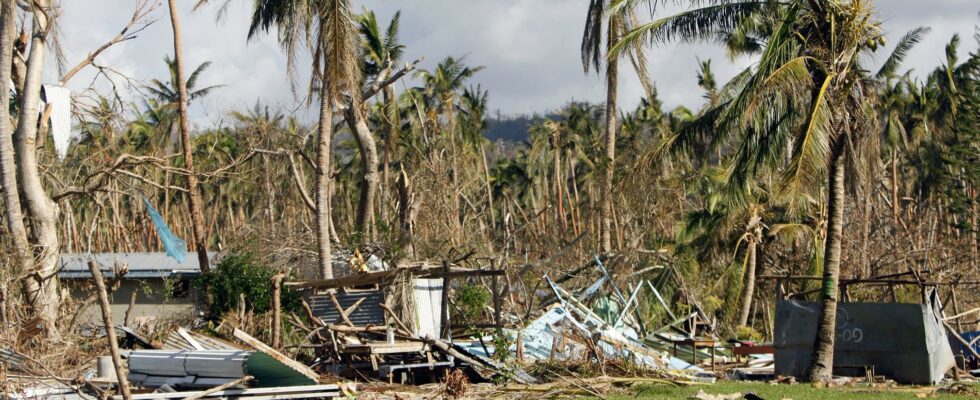unsaveSave
expand-left
full screen Devastation after a cyclone made landfall on one of Vanuatu’s islands in 2015. File photo. Photo: Nick Perry/AP/TT
A small Pacific nation has pushed to get the world’s highest court to rule on states’ responsibilities on climate change. It is described as an important step in an increasingly intense fight for climate justice.
Vanuatu is one of the island nations fighting for its future in the front line of climate change.
Villages have been forced to move since rising sea levels destroyed the supply of fresh water and the increasingly warmer seawater has damaged coral reefs, exacerbated cyclones and driven the country’s economically important tuna to flee.
The Pacific nation has spearheaded an initiative that led the UN General Assembly to request in March 2023 a legal opinion from the International Court of Justice (ICJ) in The Hague on states’ obligations linked to climate change.
– A win for climate justice of epic proportions, Vanuatu Prime Minister Ishmael Kalsakau said at the time.
And at the end of last week, the ICJ announced that hearings will begin on December 2 this year.
Two questions
The UN court will try to answer two questions: What obligations do countries have to protect the climate and the environment, and what should the legal consequences be for governments that, through lack of measures and large emissions, destroy the climate in a way that affects others? In particular, the Court must weigh the obligations that exist towards small, vulnerable island nations as well as towards future generations.
The ICJ, commonly referred to as the world’s highest court, usually adjudicates disputes between countries but also issues advisory opinions interpreting how existing international agreements should apply to new issues. They are not binding, but are seen as a way to put pressure on governments and courts and pave the way for future lawsuits.
However, it is expected to take several months, perhaps years, before the ICJ issues its opinion. It is not clear how many countries or organizations will try to make their voices heard during the hearings or how long they might take.
Taken to court
More and more climate cases are being brought to courts and tribunals around the world, as a way of trying to get policy makers and companies to do more to reduce the emissions of greenhouse gases that are warming the planet.
In May, for example, nine small island states won what was described as a historic case in the International Court of the Law of the Sea, which means that countries that have signed the Convention on the Law of the Sea must do more to protect the oceans against climate change.
FACTS International Court of Justice in The Hague
The International Court of Justice (ICJ) settles disputes between UN member states. Based in The Hague.
Can also deliver so-called advisory opinions on legal issues at the request of the UN Security Council, the General Assembly, the UN’s specialist bodies and other associations.
Source: The National Encyclopedia
Read more
